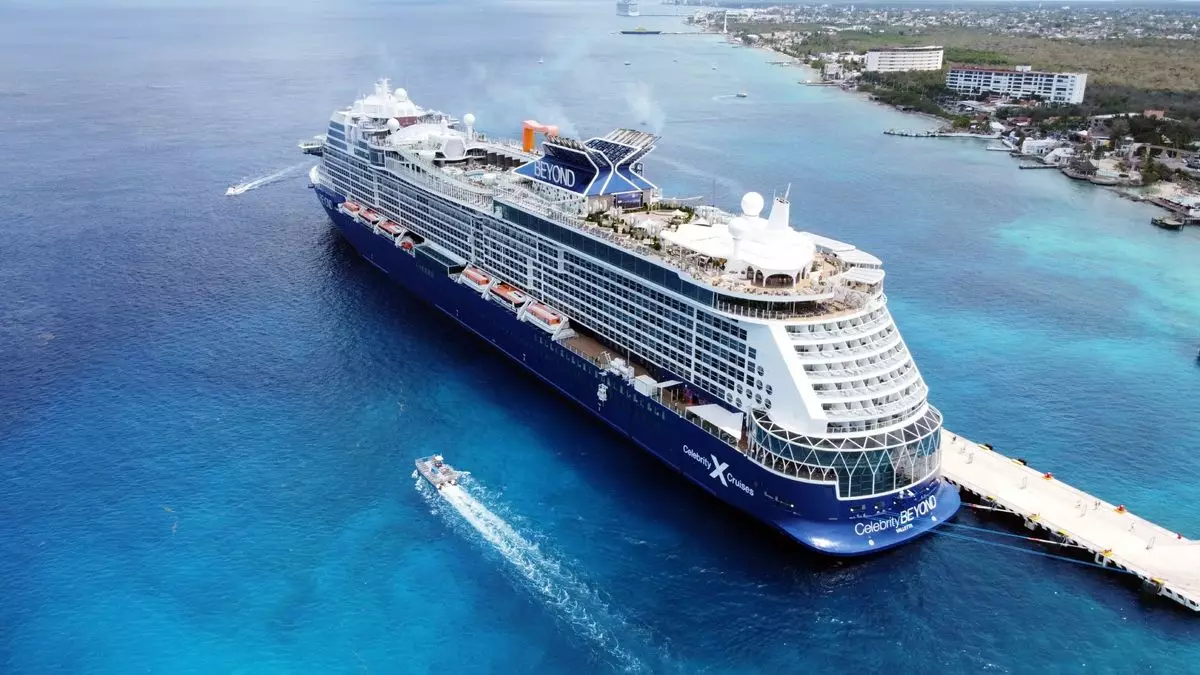The recent approval of a $42 cruise passenger tax by Mexico’s Congress has raised significant concerns within the cruise industry. This move follows a long-standing tax exemption, now removed, which had supported the growth of cruise tourism in the nation. Industry leaders, represented by the Florida-Caribbean Cruise Association (FCCA), argue that this new financial burden will detract from Mexico’s appeal as a cruise destination and threaten the country’s vibrant tourism economy.
Economic Implications for Mexico
According to the FCCA, cruise tourism is a substantial contributor to Mexico’s economy. It is estimated that cruise ports in the country generated approximately $62.6 million in port fees during the 2023-24 cruise year. The newly instated tax, however, could inflate the cost of cruising to Mexico by an alarming 213% compared to the average costs associated with Caribbean ports. Such an increase is problematic, as it potentially renders Mexico a less competitive and attractive option for cruise-goers.
Michele Paige, CEO of the FCCA, highlighted in her correspondence to President Claudia Sheinbaum that this steep charge could lead to a significant drop in demand for Mexican cruise itineraries. In a landscape where 2025 forecasts expected over 10 million passengers and around 3,300 ship calls to Mexican ports, the introduced tax could drastically alter these numbers, showcasing an issue that extends beyond mere economics—it’s a question of accessibility for travelers.
Particularly affected by this proposed tax is the state of Quintana Roo, home to popular cruise destinations like Cozumel and Costa Maya. Here, cruise tourism constitutes an astounding 40% of the gross domestic product. The reputational damage of becoming more expensive could hamper Mexico’s position within the cruise shipping market and, ultimately, hurt local economies that depend heavily on the influx of tourist dollars.
The implications stretch beyond immediate financial concerns; they also encompass potential job losses in an industry that supports over 20,000 jobs in Mexico and contributes around $200 million in wages annually. As cruise lines reevaluate their investment strategies amid fears of declining consumer interest, the tourism industry and local economies may feel adverse repercussions that could linger for years.
A troubling aspect of this tax implementation is the perception of a disconnect between Mexican lawmakers and the cruise industry. Industry executives voiced their dismay at being blindsided by the tax decision, which they believe came without meaningful dialogue or consultation. This lack of communication is especially startling given the historical relationship between the Mexican government and cruise lines, which has been characterized by mutual benefits.
The request for dialogue was articulated by Paige, who emphasized the need for collaborative discussions regarding policies that so significantly affect an industry that has been integral to Mexico’s tourism strategy for over a decade.
Looking ahead, the ramifications of the proposed cruise passenger tax may usher in a necessary reevaluation of how Mexico positions itself in the cruise tourism market. As cruise lines weigh the potential impacts on consumer demand and the viability of their investments in the region, hard questions arise about the future of destinations greatly dependent on cruise tourism.
Investments valued in billions aimed at enhancing Mexico’s appeal—building new infrastructure, creating jobs for local seafarers, and launching social programs—are now subject to uncertainty. These initiatives are crucial not only to maintaining tourism flows but also improve the socio-economic conditions within underserved areas.
The attempt to levy a tax on cruise passengers may be well-intentioned, aiming to enhance state revenues, but it carries with it a highly risk-laden potential to harm a crucial leg of Mexico’s tourism economy. Without careful consideration and collaboration between industry stakeholders and government officials, the future vitality of cruise tourism in Mexico could indeed find itself at a pivotal crossroads.

